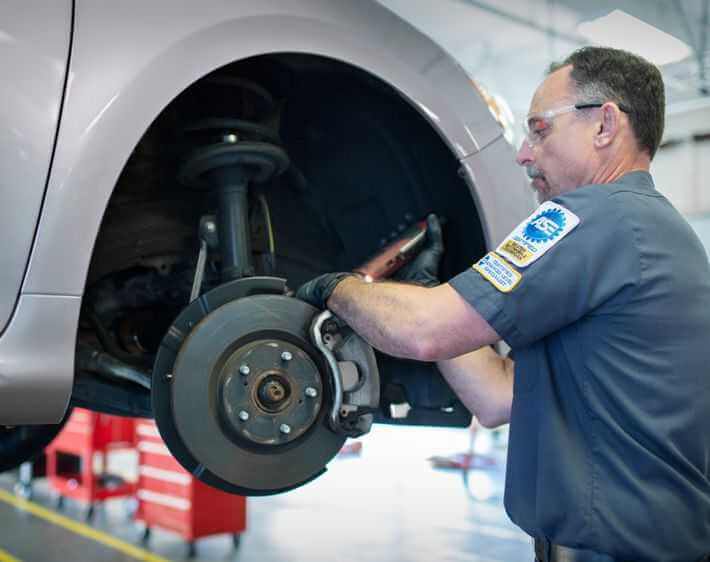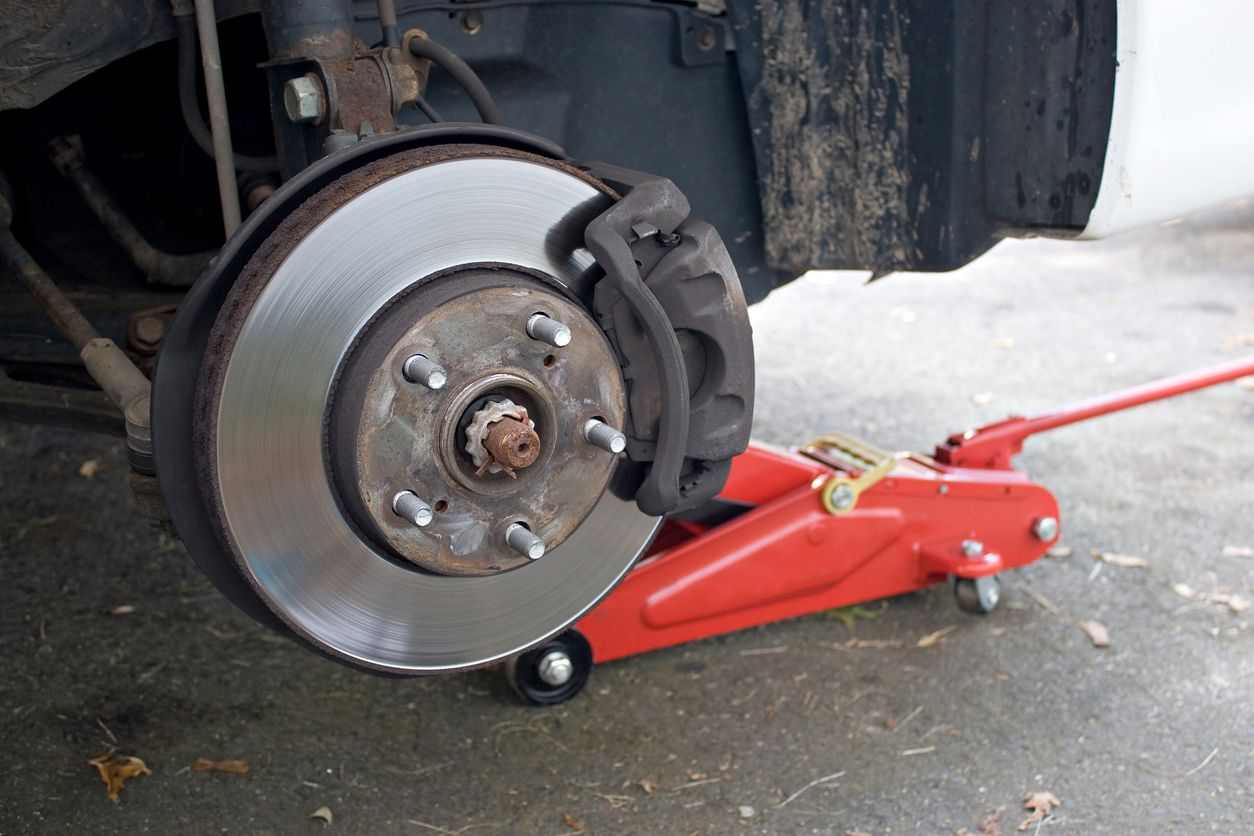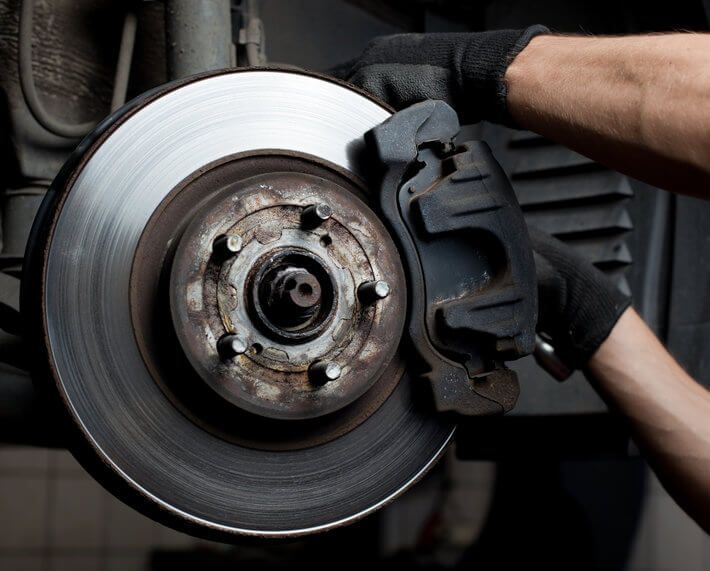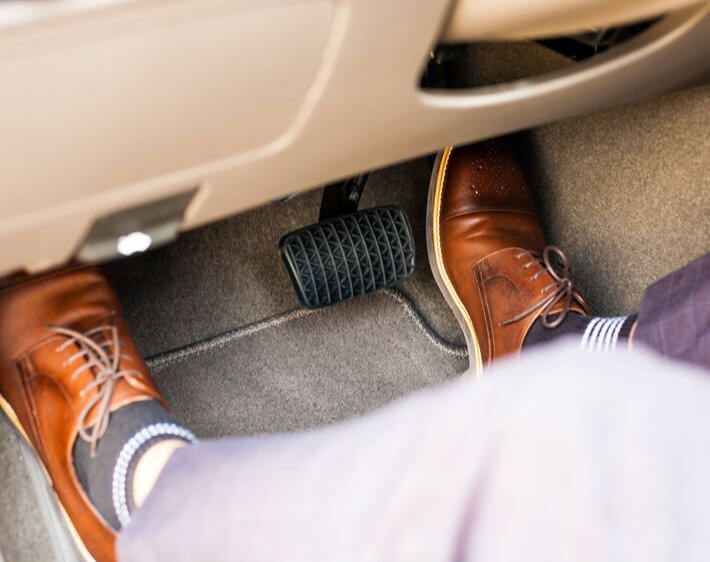You step on your brake and grimace. SQUEEEEAK. Looks like you need to schedule a last minute trip to the auto shop…or do you?
Depending on the situation, a little brake squeak might be no cause for concern. Brakes can squeak when they’re hot, or when there’s a bit of snow or ice buildup.
The truth is, some brake noises are temporary, particularly in the winter. Follow along as we fight common brake noise myths with facts!
Myth: All brake noises are bad.
As someone who cares for and relies on your car, you pay attention when pieces and parts start talking. (High five from our technicians, here!) While brake noises can be startling, not all of them indicate a major problem in the brake system.
Fact: Some brake noises are harmless and temporary.
There are a few different situations that can cause brakes to temporarily squeak.
Low Temperatures and Lots of Moisture
It’s cold outside, and there is snow or ice buildup on your brake pads and rotors—the two parts that come into contact when you brake. As you drive, the heat from your brakes will melt the ice. The squeaking should subside as the ice melts and the system drys out.
Heavy Use and Excessive Heat Buildup
You just enjoyed an epic day of skiing! You're driving down the mountain and you find that you haven’t taken your foot off the brake pedal the whole time—causing your brakes to get really, really hot. This excessive heat buildup can lead to reduced friction between the brake pads and rotors, causing a (sometimes audible) squeak and decrease in braking power known as “brake fade.”
If you think you may be experiencing brake fade, pull over to a safe spot and allow your brakes to cool down. It only takes about 5 minutes. Just enough time to grab a coffee!
Dusty Drives and a Layer of Debris
Do you often drive on unpaved roads or in dusty areas? Your brake pads and rotors may be covered in a layer of debris! Let your technician know if you think this may be the case. They can perform a quick brake inspection and wipe away any dirt buildup.
New Metallic Brake Pads
This squeak source may be hard to spot, especially if you're not sure what type of brake pad you have (ceramic, metallic, or organic). Metallic brake pads are comprised of copper, iron, steel, and other composite metals, and they tend to be noisier than other types of brake pads. It's just their nature!
Performance-minded drivers sometimes prefer metallic brake pads because they deliver enhanced braking performance in a range of conditions and temperatures. Talk to your technician to learn more about your current brake pads and to decide if you should switch to a different type.
Fact: Ongoing brake noises are a safety concern.
Take note of unusual noises that don't go away after a few miles of driving. Trust your gut. Malfunctioning or worn-out brakes may not deliver the stopping power you need. Brakes that always screech under certain circumstances or noises that become louder and more frequent may indicate that it is time to replace the brake pads.

The following signs can point to other brake problems, too:
Head to your nearest Firestone Complete Auto Care for a brake check if you notice these signs.
Myth: Having an expert check out your brakes will cost you.
You’re on the fence. Your brakes are squeaking, but you can’t decide if it’s normal squeaking or worrisome squeaking. If you take your car into the shop, it'll cost you money, won't it? Let's bust that myth.
Fact: Firestone Complete Auto Care offers free brake inspections.
Visit your local Firestone Complete Auto Care, and our expert technicians will perform a free brake inspection. It’s a win-win situation: either they’ll ease your mind and let you know that those sporadic squeaks are normal, or they’ll identify a problem before it turns into a much bigger one. Let our technicians get to the bottom of your brake troubles so you can hit the road in a quieter, safer car.



